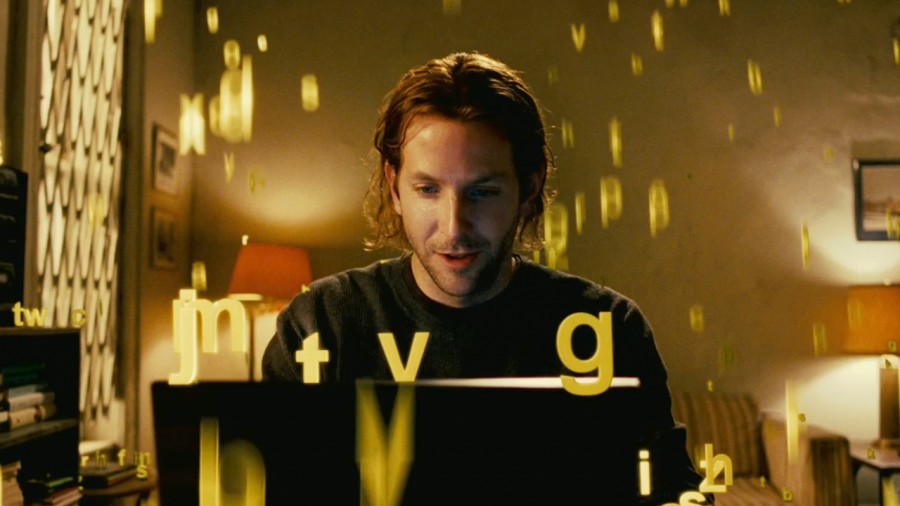We went to see a film the other day, Limitless, which starts with a feckless author who has a contract but is unable to write a single word. Due to a set of fortunate or unfortunate circumstances, he is offered a drug that unlocks the 80% of the brain that we apparently don't use.

There is a lovely scene where words are raining down on him as he types, which is a great depiction of the magic state of flow. Once he's written 'the best novel of the century' in four days, he moves on to other adventures, and the plot rather ignores the 'writer' element ?(although a Russian mafioso revels in his own extended vocabulary on the drug which is oddly touching!). Even an outstanding work of staggering genius takes time to get published, and the film moves at a breakneck pace.
It may seem picky to point out something unrealistic in a film that is plainly a fantasy, but how did our author get his contract? At one point, he's telling his agent that he will gladly return his advance if she doesn't think he's written well.
The only way he would have a contract without having written a word is if it were his second book. Publishers offer two book contracts on the basis of a well-written first novel. Celebrities do get deals without writing a word of their memoirs, but then they often work with a ghost author so don't end up writing very much themselves.
This is a bit of a roundabout way of saying, when you submit a novel, your chances are much better if you have a finished work. Your agent and editor will almost certainly want some changes, but they are not there to hold your hand as you write the entire novel.
Perhaps this is why authors often find a second novel so difficult, because they are aware of the lurking professionals in a way that they weren't the first time?
Have you noticed any other authors on screen that inspire you or irritate you?
(Editorial Consultant)
I must admit I am finding book 2 much harder going than book 1. I think this is because book 1 is the book that has been marinating in the back of your mind for years, while after that you are starting from scratch.
A couple of publishers offered me 2-book deals, though in the end I decided to go for a one-book deal with the publisher I liked the best and found myself falling foul of what my agent says has become almost an epidemic in the industry; the habit of delaying deals for writers who are already on the books. Of course you can always jump ship, but they know you are going to be reluctant to do that, especially in that year between hardback publication and paperback publication. You obviously want as much promotion as possible at the time of paperback release, and how committed to you can you expect your publisher to be if you have already left them for another publisher?
Hmm.
My book 2 is damned hard work - full of stops and starts; agonising over tiny details. And it's not simply because the plot timescale is more rigid (it's a historical), but because the storyline has to be more complex; the prose has to be tighter; the action has to be more exciting.
Actually, the book might need none of these improvements, but I think it does. No-one else comes into it.